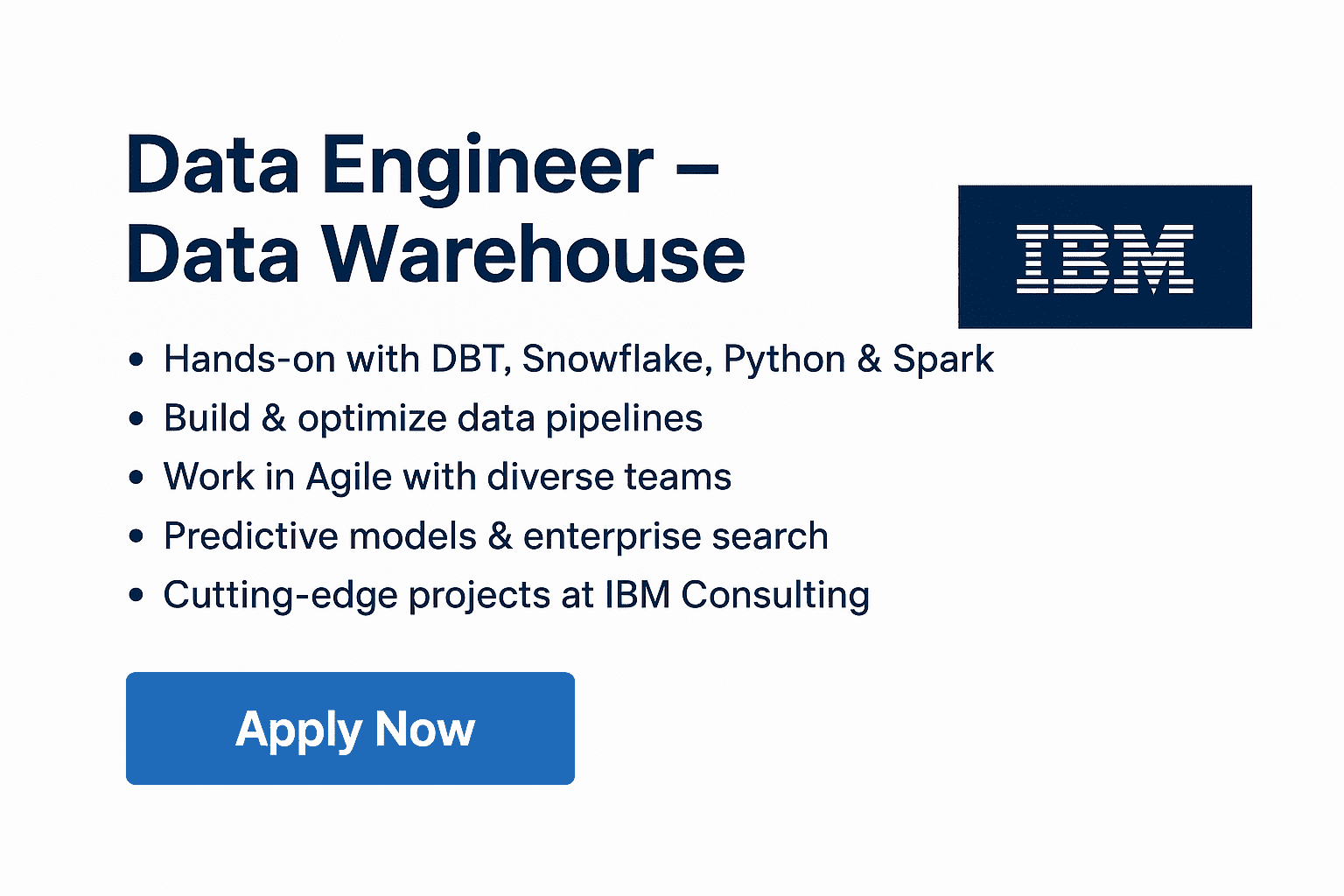If you’ve ever wondered how businesses turn raw numbers into powerful insights, the answer often lies in the work of a data engineer. These professionals are the backbone of modern data systems, designing and managing the pipelines that make analytics and AI possible. With companies across industries investing in data-driven strategies, the demand for skilled data engineers is at an all-time high.

What Does a Data Engineer Do?
At its core, a data engineer job description involves building and maintaining the architecture that allows organizations to collect, process, and analyze data efficiently. This includes designing databases, managing ETL (extract, transform, load) processes, and ensuring data flows seamlessly between systems.
For beginners curious about how a data engineer works, think of them as the engineers who construct and maintain highways—only instead of cars, they’re moving data from one place to another.
Skills Every Data Engineer Needs
To succeed in this role, mastering both technical and problem-solving skills is essential. Top data engineer skills include:
- Proficiency in programming languages like Python, Java, or Scala.
- Knowledge of cloud platforms such as AWS, Azure, or GCP (many roles specifically ask for a data engineer with AWS experience).
- Experience with big data tools like Hadoop and Spark.
- Database expertise in SQL and NoSQL.
- Strong analytical thinking to translate business needs into technical solutions.
Data Engineer Career Roadmap
If you’re just starting, a data engineer for beginners might begin with learning SQL and Python before moving on to more advanced concepts like distributed systems and real-time processing.
A typical data engineer roadmap looks like this:
- Learn programming and SQL basics.
- Understand data modeling and database systems.
- Gain hands-on experience with ETL tools and cloud services.
- Explore big data ecosystems and real-time data processing.
- Advance into specialized fields like AI-driven pipelines or enterprise data warehouses.
Whether you aim for data engineer fresher jobs or long-term freelance opportunities, this roadmap helps you stay on track.
Data Engineer vs. Data Scientist
Many people wonder about data engineer vs. data scientist. While both roles work with data, their focus is different. Data engineers build the systems that collect and organize information, while data scientists analyze that data to create insights and models. Think of engineers as the builders and scientists as the explorers who use what’s built.
It’s also worth comparing a data engineer vs. software engineer. While software engineers create applications, data engineers focus on systems that handle massive volumes of information.
Salary and Job Opportunities
The field offers strong earning potential. The data engineer average salary globally is competitive, and if you’re considering opportunities in India, the data engineer salary in India ranges between ₹6–12 LPA for mid-level professionals, with senior roles going much higher.
For those just entering the market, data engineer entry-level salary is still attractive compared to many other IT roles. With the rise of remote work, there are now more chances for data engineer freelance jobs and data engineer jobs for freshers, especially in tech-forward cities.
Why Choose a Career in Data Engineering?
From handling real-time financial transactions to optimizing recommendation engines, data engineers play a crucial role across industries. If you’re passionate about solving problems with technology, enjoy working with large-scale systems, and want strong career growth, becoming a data engineer is one of the best choices in today’s job market.
FAQs on Data Engineer Careers
1. How does a data engineer work?
A data engineer designs and maintains systems that move, clean, and store data. They ensure that raw data is usable for analysts and scientists by creating efficient pipelines and scalable architectures.
2. What is the difference between a data engineer and a data scientist?
A data engineer builds the infrastructure for data, while a data scientist uses that data to create insights, predictions, and models. Both roles complement each other.
3. What are the must-have data engineer skills?
Key skills include SQL, Python, cloud platforms like AWS, big data tools (Spark, Hadoop), and problem-solving abilities. Strong communication skills are also vital for working with cross-functional teams.
4. What does the data engineer roadmap look like?
The roadmap includes learning programming and databases, mastering ETL processes, gaining cloud expertise, and moving into big data and real-time processing. Continuous learning is crucial.
5. What are common data engineer interview questions?
Typical questions include: how would you design a data pipeline, what’s the difference between batch and real-time processing, and how do you optimize queries in SQL?
6. What is the average data engineer salary?
Globally, salaries are high due to demand. Mid-level engineers often earn well above the tech average, with growth opportunities as you gain experience.
7. What is the data engineer salary in India?
In India, freshers can expect around ₹4–6 LPA, while experienced professionals can earn between ₹10–20 LPA depending on skills and location.
